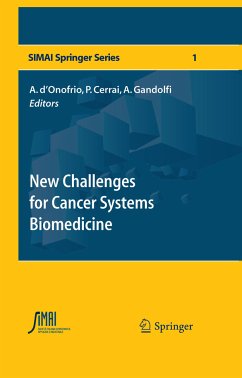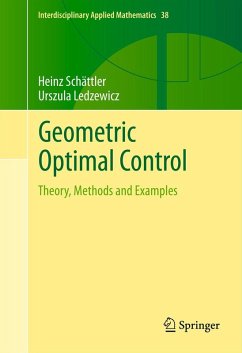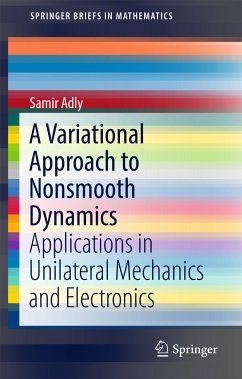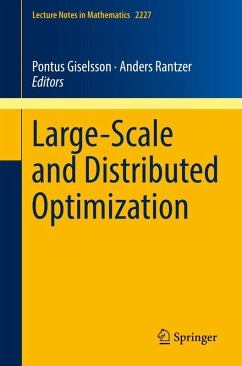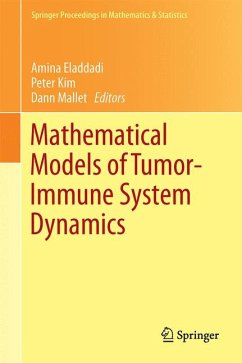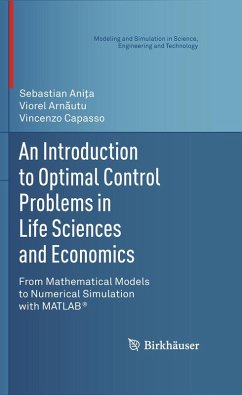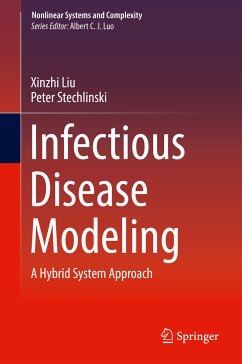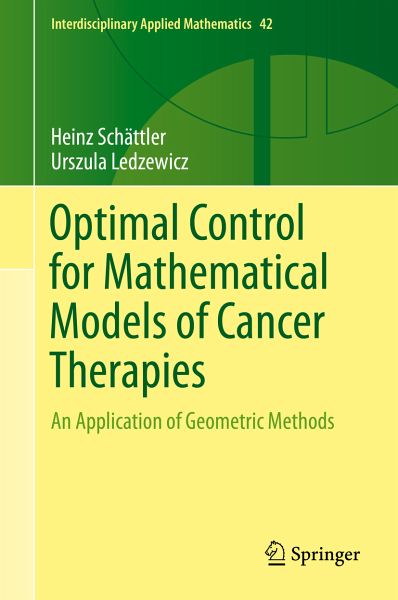
Optimal Control for Mathematical Models of Cancer Therapies (eBook, PDF)
An Application of Geometric Methods
Versandkostenfrei!
Sofort per Download lieferbar
72,95 €
inkl. MwSt.
Weitere Ausgaben:

PAYBACK Punkte
36 °P sammeln!
This book presents applications of geometric optimal control to real life biomedical problems with an emphasis on cancer treatments. A number of mathematical models for both classical and novel cancer treatments are presented as optimal control problems with the goal of constructing optimal protocols. The power of geometric methods is illustrated with fully worked out complete global solutions to these mathematically challenging problems. Elaborate constructions of optimal controls and corresponding system responses provide great examples of applications of the tools of geometric optimal contr...
This book presents applications of geometric optimal control to real life biomedical problems with an emphasis on cancer treatments. A number of mathematical models for both classical and novel cancer treatments are presented as optimal control problems with the goal of constructing optimal protocols. The power of geometric methods is illustrated with fully worked out complete global solutions to these mathematically challenging problems. Elaborate constructions of optimal controls and corresponding system responses provide great examples of applications of the tools of geometric optimal control and the outcomes aid the design of simpler, practically realizable suboptimal protocols. The book blends mathematical rigor with practically important topics in an easily readable tutorial style. Graduate students and researchers in science and engineering, particularly biomathematics and more mathematical aspects of biomedical engineering, would find this book particularly useful.
Dieser Download kann aus rechtlichen Gründen nur mit Rechnungsadresse in A, B, BG, CY, CZ, D, DK, EW, E, FIN, F, GR, HR, H, IRL, I, LT, L, LR, M, NL, PL, P, R, S, SLO, SK ausgeliefert werden.



